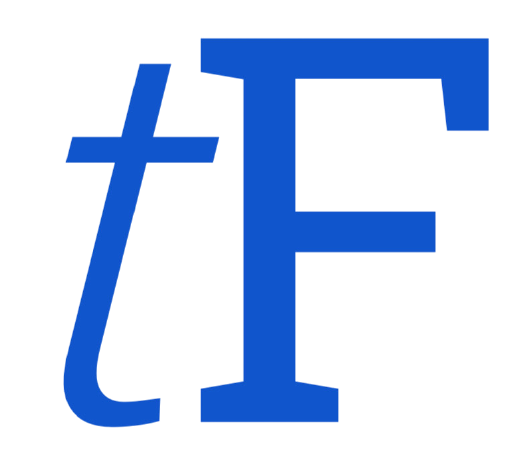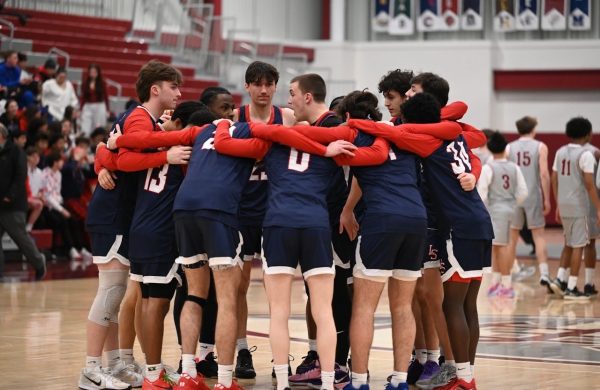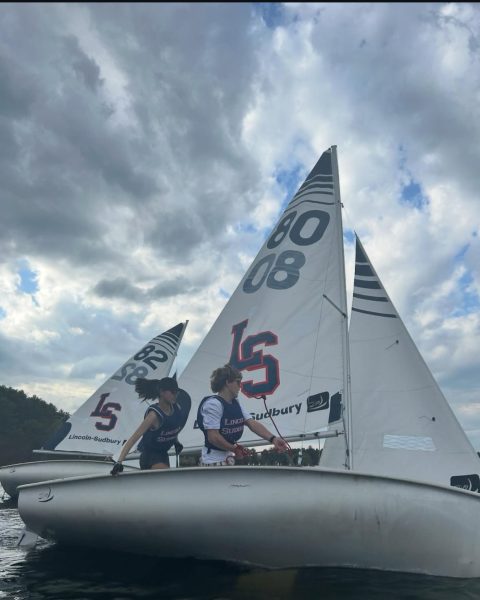Sports Teams Boycott for Racial Justice
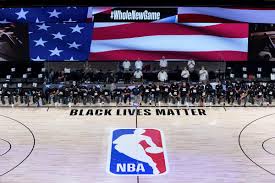
NBA PLAYERS kneel for the national anthem ahead of a playoff game. Photo courtesy of the Associated Press.
Near the end of June, The Forum ran an article about how sports leagues have been dealing with the current racial climate in America. Since then, there has been action taken throughout the world of sports. Large sums of money have been dedicated to fighting for racial justice and many symbolic gestures have been made by leagues. However, the most impactful of these actions was the sports-wide boycott that took place in the wake of the Jacob Blake shooting near the end of August.
When Jacob Blake was shot in the back seven times while being arrested by police in Kenosha, Wisconsin, the country was rightfully outraged. People had already been protesting for George Floyd and Breonna Taylor, and Blake was just another horrific example of police brutality in America. At this point, the NBA and NHL bubbles were underway as well as the MLB season. Just three days after the shooting, the Milwaukee Bucks, who typically play about an hour away from Kenosha, chose to boycott their playoff game against the Orlando Magic. In response, every game in the NBA that day was canceled. Games the following day were also postponed, including a Celtics playoff game against the Toronto Raptors. The NHL also chose to postpone all playoff games for a day.
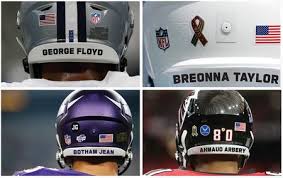
Over the next few days, there were serious discussions in the NBA about whether or not to keep playing at all. Celtics forward Jaylen Brown was very vocal during these meetings asking players if they left the bubble, “Are you going to be in the trenches? Are you going to be in the streets?” Ultimately, the teams held a vote and only two supported completely ending the season, the Lakers and the Clippers. The season resumed soon after, but there is no question that many players will be working to make a difference once they leave the bubble.
“Are you going to be in the trenches? Are you going to be in the streets?”
In the MLB, boycotts also took place. Similar to the NBA, Milwaukee was the first team to boycott with the Brewers refusing to play. Not every team chose to boycott, however, with only 10 games being postponed in total. The Red Sox were scheduled to play the Blue Jays a day after the first boycotts, but after Jackie Bradley Jr., the only African-American on the team said he would refuse to play the team followed. In Bradley’s own words, “I am the only Black person on this team, so I kind of feel like it’s my responsibility to address it.” The Blue Jays were reportedly not planning on boycotting and were surprised by Boston’s decision, but respected the choice and declined a forfeit.
“I am the only Black person on this team…it’s my responsibility to address it”
While sports were back to usual within a week, the boycotts were an unprecedented and historical protest. Athletes have used their platforms in the past, but games have never been postponed for racial justice. Hopefully, more steps will be taken by people in power to cause change, but the fact that some of the most famous athletes in the world have been taking a stand for equality is truly amazing.
